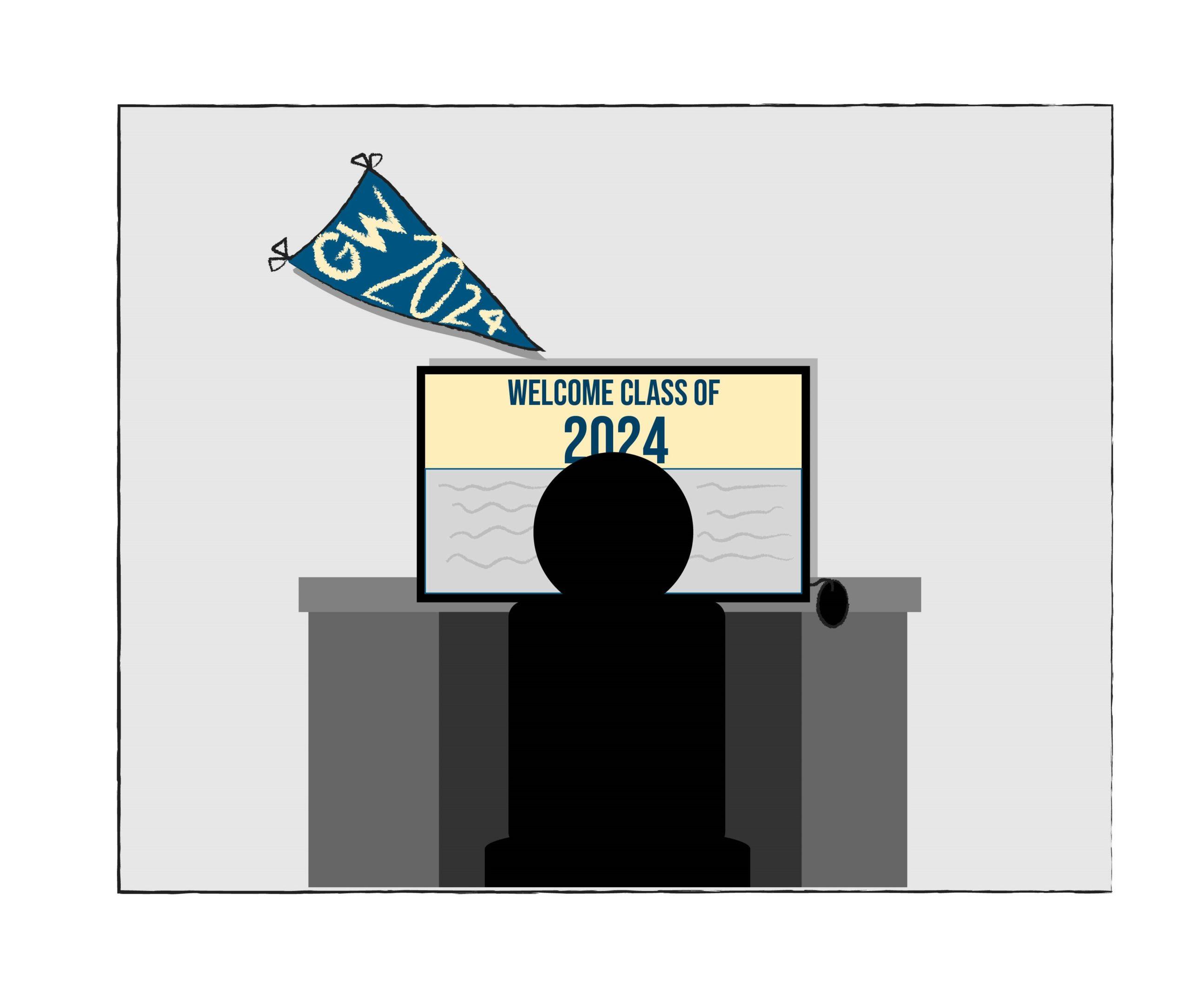As the May 1 deadline for college decisions approaches, many high school seniors are considering staying closer to home and attending in-state public colleges come fall. On the other hand, current students might feel anxiety about another semester online and need more financial support from GW. The University must remedy both concerns.
Among potential students’ biggest concerns is the uncertainty of enrolling at a campus that they have not had the opportunity to tour. Both potential and current students may ultimately choose to attend a school closer to home or a cheaper option because of the fear and anxiety surrounding COVID-19, employment and travel across the country. To alleviate stresses on both ends, officials should communicate clearly about academics online to reassure students about the quality of their education and make financial changes that reduce some of the uncertainty about the cost of college.

Hannah Thacker | Opinions Editor
The University’s communication with admitted students must convince them why they should still attend GW. The University sends out frequent emails concerning COVID-19 to give potential students an idea of what GW is like, but resident advisers, area coordinators and faculty should make themselves available to field questions through Zoom or over email. These employees can answer questions students may have about campus life that could have been answered on a campus tour or at an admitted students day. Effective outreach from RAs or area coordinators would also alleviate concerns among parents, who play an active role in their child’s college decision-making processes.
Officials should also lay out a clear contingency plan for online classes in the fall if the threat posed by the pandemic does not subside. Administrators should proactively detail what will happen to classes that rely on University infrastructure, like labs and fine arts courses. Administrators should let incoming and current students both know how to access resources like career and academic advising online so students are able to have the “full” GW experience, should classes stay online. Communicating clearly about online classes and support services will reassure existing students and convince prospective students that GW still has much to offer them – even if we end up online for a bit longer.
The University should ensure coming to GW is financially feasible despite the economic effects of the pandemic. GW could roll back its new floating tuition policy, intended to fund projects like the Thurston Hall renovation, and return to a fixed-tuition model, which previously allowed parents and students to gain an accurate sense of their cost of tuition over five years. An accurate estimate of the total cost of attending college is crucial for incoming students worried about their financial situation as coronavirus-related unemployment continues to climb.
Potential students aren’t the only ones concerned about the coronavirus’ impact on academics and college life. The University should be more transparent about the fall semester with current students and faculty, whether that means presenting potential contingency plans or benchmarks officials are using to decide whether to hold in-person class. Universities like California State Fullerton have announced their classes will be held online in the fall, and peer school Boston University announced it is creating a plan for what will happen if classes must be held online until 2021. GW does not need to announce definitively if they are holding classes online in the fall, but they need to be clear about how they will handle the situation if they are forced to do so.
That being said, the University’s efforts to entice high school seniors to choose GW should not negatively impact returning students, nor can the concerns of already enrolled students be ignored. The University should increase tuition discounts in the face of demonstrated additional hardship where possible by approving more change-of-circumstances requests so families struggling financially are able to afford GW. The University has taken some steps – like establishing a fund through which people can give to students in need – but more should be done. Taking these additional steps will ensure GW is affordable for not only low-income families, but also for those who have come under pandemic-related financial hardship.
Economic concerns and pandemic-related stress are real for many GW families amid the ongoing crisis. The next few months are unpredictable, but circumstances are likely to change between now and August. It is essential that all students – incoming and returning alike – and their families be kept in the loop about how the University plans to respond. Doing so will ensure GW remains an option for those seeking to begin their undergraduate experience.
The editorial board is composed of Hatchet staff members and operates separately from the newsroom. This week’s piece was written by opinions editor Kiran Hoeffner-Shah and contributing opinions editor Hannah Thacker based on conversations with The Hatchet’s editorial board, which is composed of copy editor Natalie Prieb, managing director Leah Potter, design editor Olivia Columbus, sports editor Emily Maise and culture editor Sidney Lee.


